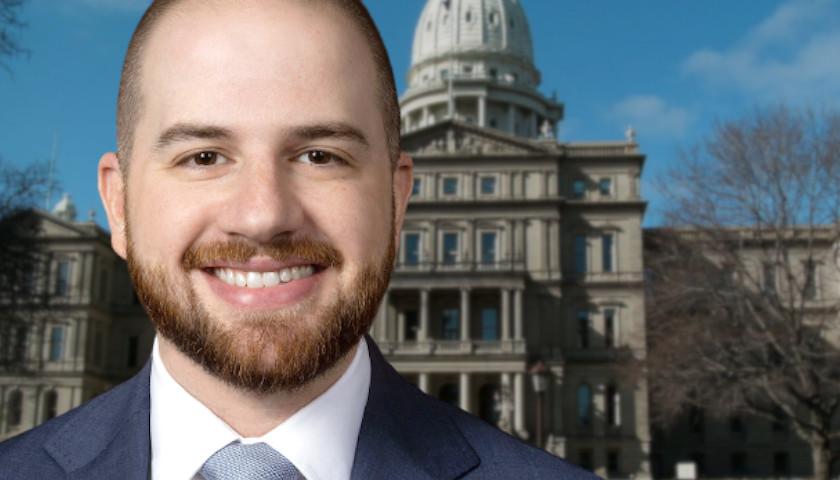by Scott McClallen
The Michigan Senate passed financial disclosure bills voters approved in November 2022 through Proposal 1 to expose conflicts of interest but one lawmaker says the rules are all “smoke and mirrors.”
Senate Bills 613, 614, 615, and 616 aim to require lawmakers and candidates for public office to disclose assets and income above certain thresholds. The bills seek to require candidates and officeholders to disclose their spouse’s employment, including their status as a registered lobbyist.
“This move towards transparency is a significant achievement in our ongoing efforts to make legislators accountable to the public,” Sen. Jeremy Moss (pictured above), D-Southfield, chair of the Senate Elections and Ethics Committee, said in a statement. “Prop. 1 isn’t the end; it’s the start of much-needed transparency laws in Michigan. It reflects our years-long goal of enacting Michigan’s first financial disclosure law — revealing conflicts of interest among lawmakers.”
The bill aims to require lawmakers to disclose income sources, assets held, liabilities, spouse’s occupations, other positions held and future employment agreements.
Currently, Michigan is one of only two states where lawmakers don’t have to file any type of public report about their finances, despite commanding billions of taxpayer money for every budget.
Sen. Ruth Johnson, R-Holly, said the bills are a “snow job.”
“I urge that not a single member of this body walk out of this chamber patting themselves on the back,” Johnson said in a statement. “I have been around long enough to know that the financial disclosure bills passed today are not a start, they are a snow job. This is all smoke and mirrors to deceive the voters of Michigan into thinking they are actually going to get some real accountability from their state government.”
In previous years, Johnson said lawmakers “intentionally left holes the size of Texas” for current and future lawmakers to “exploit as they please” while taxpayers foot the bill.
Senate Majority Leader Winnie Brinks, D-Grand Rapids, said the proposed rules would bring more transparency to Michigan politics.
“The voters demanded transparency, and we happen to agree with them! Measures to shine light on the state legislature and those who serve here are long overdue,” Brinks said in a statement.
The bills move to the House.
Secretary of State Jocelyn Benson welcomed the passage.
“I stand with Michigan voters who have demanded stronger transparency and ethics laws in our state and am grateful to the lawmakers on both sides of the aisle who are dedicated to making their will a reality,” Benson said in a statement. “I hope and expect these bills, which reflect the minimum requirements of Proposal 1, are just the beginning of meaningful disclosure policies we see proposed, debated, and enacted in our state.”
– – –
Scott McClallen is a staff writer covering Michigan and Minnesota for The Center Square. A graduate of Hillsdale College, his work has appeared on Forbes.com and FEE.org. Previously, he worked as a financial analyst at Pepsi. In 2021, he published a book on technology and privacy. He co-hosts the weekly Michigan in Focus podcast.





